Filter by
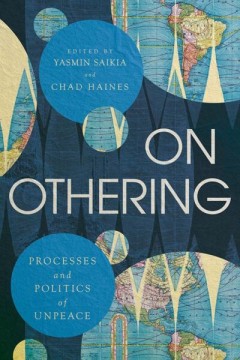
On Othering Processes and Politics of Unpeace
In every sphere of life, division and intolerance have polarized communities and entire nations. The learned construction of the Other—an evil “enemy” against whom both physical and discursive violence is deemed acceptable—has fractured humanity, creating divisions that seemingly defy reconciliation. How do we restore the bonds of connection among human beings? How do we shift from pola…
- Edition
- -
- ISBN/ISSN
- 9781771993876
- Collation
- -
- Series Title
- Global Peace Studies
- Call Number
- 6 x 9, 360 pages
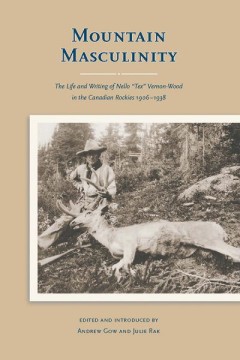
Mountain Masculinity The Life and Writing of Nello “Tex” Vernon-Wood in …
In 1906, Nello Vernon-Wood (1882–1978) reinvented himself as Tex Wood, Banff hunting guide and writer of “yarns of the wilderness by a competent outdoorsman.” His homespun stories of a vanishing era, in such periodicals as The Sportsman, Hunting and Fishing, and the Canadian Alpine Journal, have much to tell us about the west as envisioned by those who wanted to leave the industrialized w…
- Edition
- -
- ISBN/ISSN
- 9781897425022.01
- Collation
- -
- Series Title
- -
- Call Number
- 237 pages
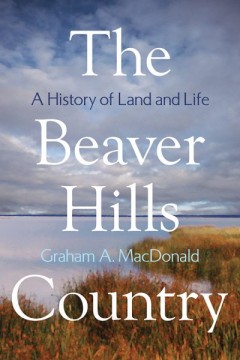
The Beaver Hills Country A History of Land and Life
This book explores a relatively small but interesting and unusual region of Alberta between the North Saskatchewan and the Battle Rivers. The Beaver Hills arose where mountain glaciers from the west met continental ice-sheets from the east to create a complex and diverse landscape. MacDonald relates how climate, water levels, wildlife, vegetation, and fire have shaped the possibilities and prov…
- Edition
- -
- ISBN/ISSN
- 9781897425374.01
- Collation
- -
- Series Title
- -
- Call Number
- 264 pages
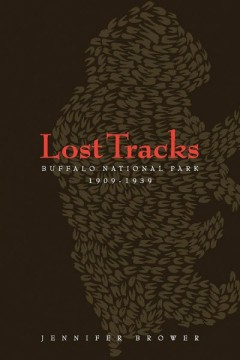
Lost Tracks Buffalo National Park, 1909–1939
While contemporaries and historians alike hailed the establishment of Buffalo National Park in Wainwright, Alberta as a wildlife saving effort, the political climate of the early twentieth century worked against its efforts to stem the decline of the plains buffalo in North America. However, the branch charged with operating the park, the Canadian Parks Branch, was never sufficiently funded and…
- Edition
- -
- ISBN/ISSN
- 9781897425107.01
- Collation
- -
- Series Title
- -
- Call Number
- 193 pages
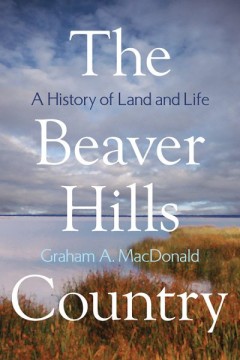
The Beaver Hills Country A History of Land and Life
This book explores a relatively small but interesting and unusual region of Alberta between the North Saskatchewan and the Battle Rivers. The Beaver Hills arose where mountain glaciers from the west met continental ice-sheets from the east to create a complex and diverse landscape. MacDonald relates how climate, water levels, wildlife, vegetation, and fire have shaped the possibilities and prov…
- Edition
- -
- ISBN/ISSN
- 9781897425374.01
- Collation
- -
- Series Title
- -
- Call Number
- 264 pages
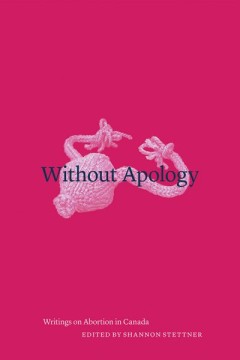
Without Apology
Without Apology seeks to address this issue by gathering the voices of activists, feminists, and scholars as well as abortion providers and clinic support staff alongside the stories of women whose experience with abortion is more personal. With the particular aim of moving beyond the polarizing rhetoric that has characterized the issue of abortion and reproductive justice for so long, Without …
- Edition
- -
- ISBN/ISSN
- 9781771991599.01
- Collation
- -
- Series Title
- -
- Call Number
- 366 pages

We Are Coming Home Repatriation and the Restoration of Blackfoot Cultural Co…
In 1990, Gerald Conaty was hired as senior curator of ethnology at the Glenbow Museum, with the particular mandate of improving the museum’s relationship with Aboriginal communities. That same year, the Glenbow had taken its first tentative steps toward repatriation by returning sacred objects to First Nations’ peoples. These efforts drew harsh criticism from members of the provincial gover…
- Edition
- -
- ISBN/ISSN
- 9781771990172.01
- Collation
- -
- Series Title
- -
- Call Number
- 304 pages
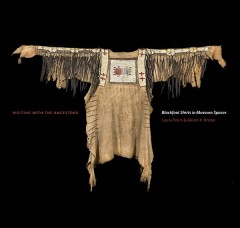
Visiting With the Ancestors Blackfoot Shirts in Museum Spaces
In 2010, five magnificent Blackfoot shirts, now owned by the University of Oxford’s Pitt Rivers Museum, were brought to Alberta to be exhibited at the Glenbow Museum, in Calgary, and the Galt Museum, in Lethbridge. The shirts had not returned to Blackfoot territory since 1841, when officers of the Hudson’s Bay Company acquired them. The shirts were later transported to England, where they h…
- Edition
- -
- ISBN/ISSN
- 9781771990370.01
- Collation
- -
- Series Title
- -
- Call Number
- 10.5 x 10, 232 pages
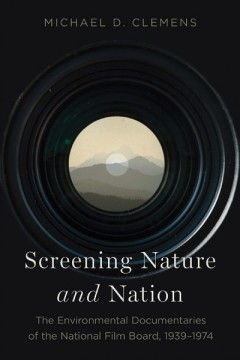
Screening Nature and Nation The Environmental Documentaries of the National …
The stunning portrayals of the Canadian landscape in the documentaries produced by the National Film Board of Canada not only influenced cinematic language, but shaped our perception of the environment. In the early days of the organization, nature films produced by the NFB supported the Canadian government’s nation-building project and show the state as an active participant in the cultural …
- Edition
- -
- ISBN/ISSN
- 9781771993357.01
- Collation
- -
- Series Title
- -
- Call Number
- 6x9, 232 pages
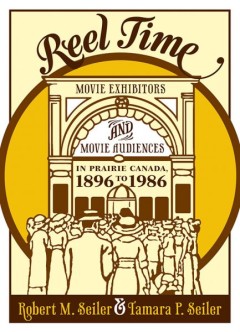
Reel Time Movie Exhibitors and Movie Audiences in Prairie Canada, 1896 to 1986
In this authoritative work, Seiler and Seiler argues that the establishment and development of moviegoing and movie exhibition in Prairie Canada is best understood in the context of changing late-nineteenth-century and early-twentieth-century social, economic, and technological developments. From the first entrepreneurs who attempted to lure customers in to movie exhibition halls, to the digita…
- Edition
- -
- ISBN/ISSN
- 9781926836997.01
- Collation
- -
- Series Title
- -
- Call Number
- 397 pages
 Computer Science, Information & General Works
Computer Science, Information & General Works  Philosophy & Psychology
Philosophy & Psychology  Religion
Religion  Social Sciences
Social Sciences  Language
Language  Pure Science
Pure Science  Applied Sciences
Applied Sciences  Art & Recreation
Art & Recreation  Literature
Literature  History & Geography
History & Geography